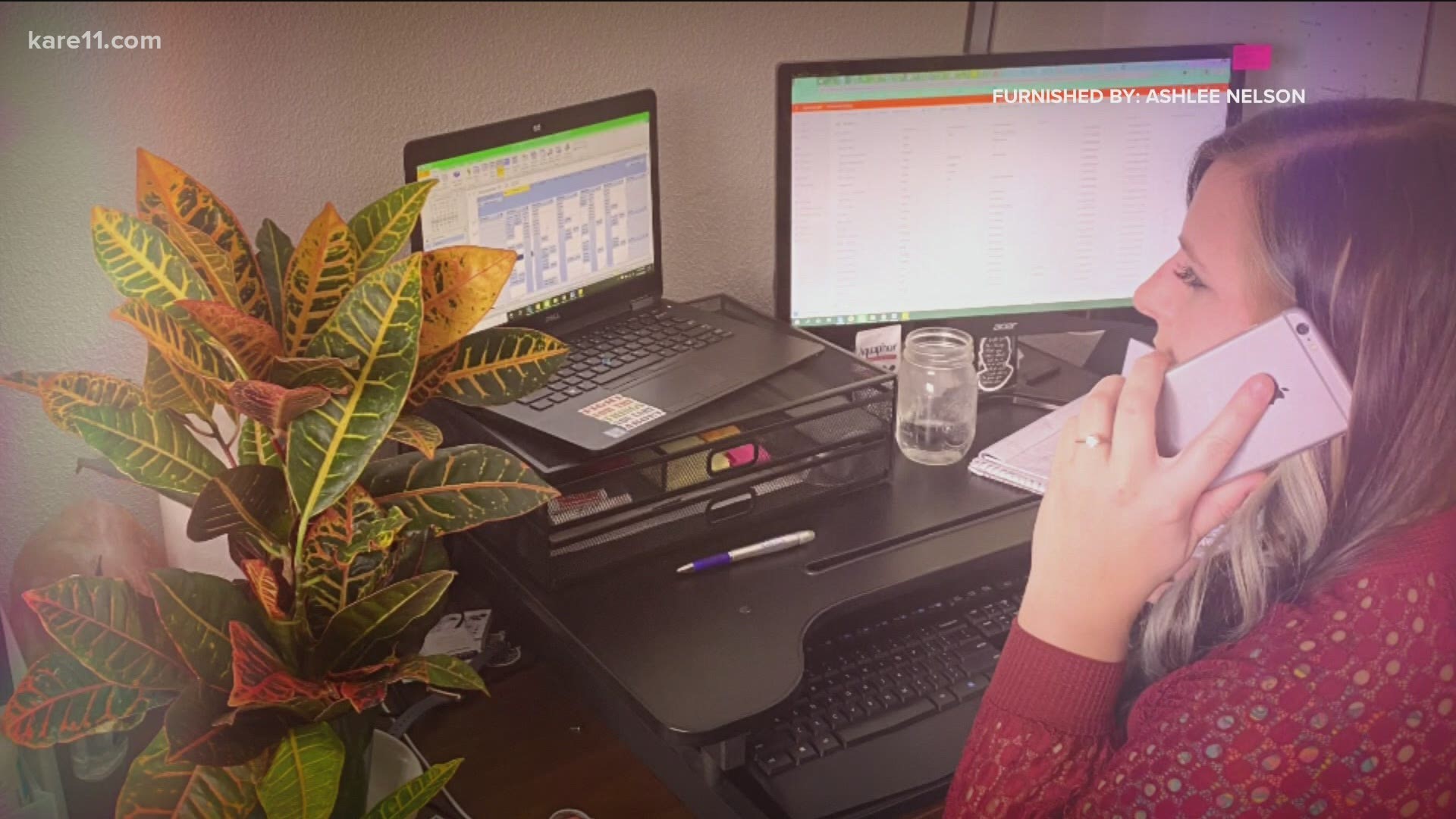GRAND FORKS, N.D. — It’s not just here.
All the states around us are seeing rates of COVID-19 infection, and deaths, rise.
The situations in North and South Dakota are dire to say the least. Last week they saw the most daily new cases per capita of any other state. They are also among the worst in the country for per capita deaths, and hospitalizations.
By every metric, the Dakotas, are in trouble.
And when a person gets a positive COVID test right now in North Dakota, it’s possible they won’t hear from a contact tracer.
But some will.
One of the remaining ones doing the work is Ashlee Nelson.
Ashlee's goal, always, was to work in public health. She just never knew her first job in the field would be in the middle of one of the biggest public health crises in history.
“So, I have been contact investigating since the very first case hit Grand Forks,” Nelson said in an interview this week from her home in Grand Forks.
That first case was back in March.
But as spring turned to summer, summer turned to fall and now winter, contact tracing is all but eliminated in North Dakota, there are just too many cases.
Ashlee is one of the few, left doing it.
“It’s stressful, there are good days and bad days, and it’s a little disheartening to see how cases continue to increase and unfortunately we are just not seeing the behavior change we would hope for,” Nelson said.
She said for her, it’s important to never focus on case numbers, but people.
“I think that people need to remember that every one of these numbers is a person and someone loves that person and they are grieving and mourning for them.
"I talk to way too many widows and widowers, children that are caring for their parents as they slip away to COVID,” Nelson said.
And she also reaches people, with news of their diagnosis, who want to hear very little of what she has to say.
“We get yelled at about masks, which isn't on us, so lots of education in these calls,” Nelson said.
She said early COVID misinformation being spread made her, and many in health care, have more difficult jobs than they thought they would have.
But that also she sees folks’ real fears coming too, when some push back.
“One of the big burdens, which I suppose isn't necessarily misinformation, but definitely leads to some of the fight against wanting to quarantine and isolate for the proper time, is the burden of not being able to work, and that is really challenging for some people,” Nelson said.
And with no federal help coming anytime soon, it seems that pushback is happening more and more.
“I think that's really the hardest parts, is very often we are not giving good news and very often we are giving the results to these cases, so it can become sensitive with emotions all over the board,” Nelson said.

